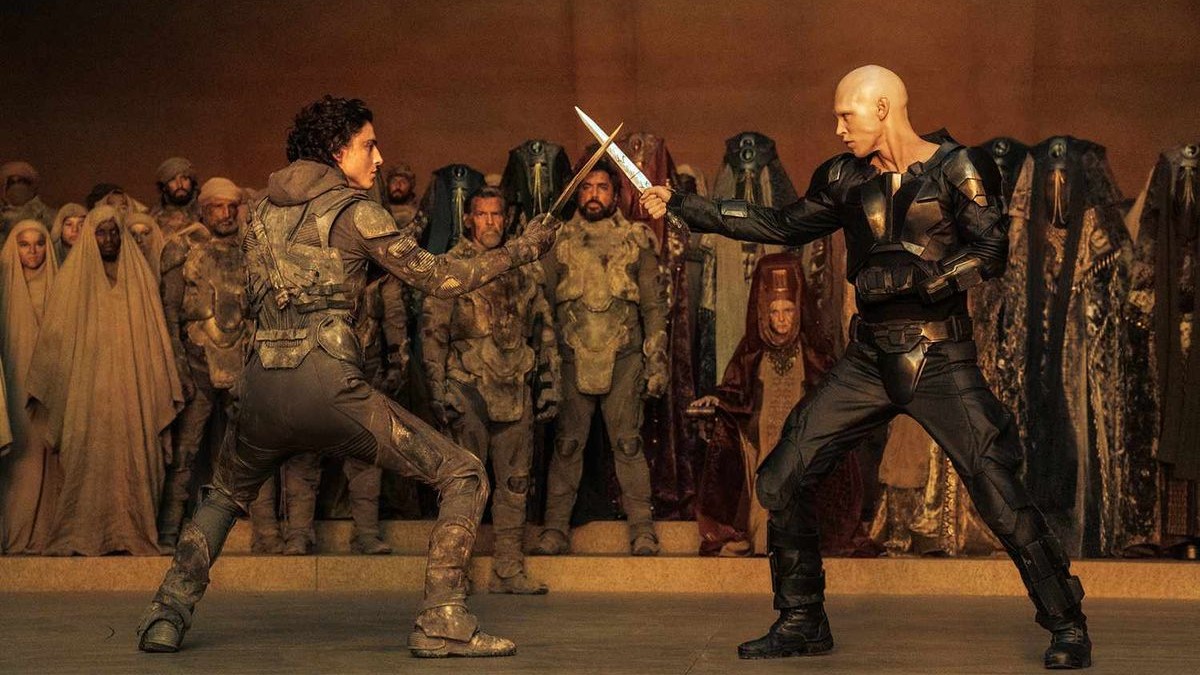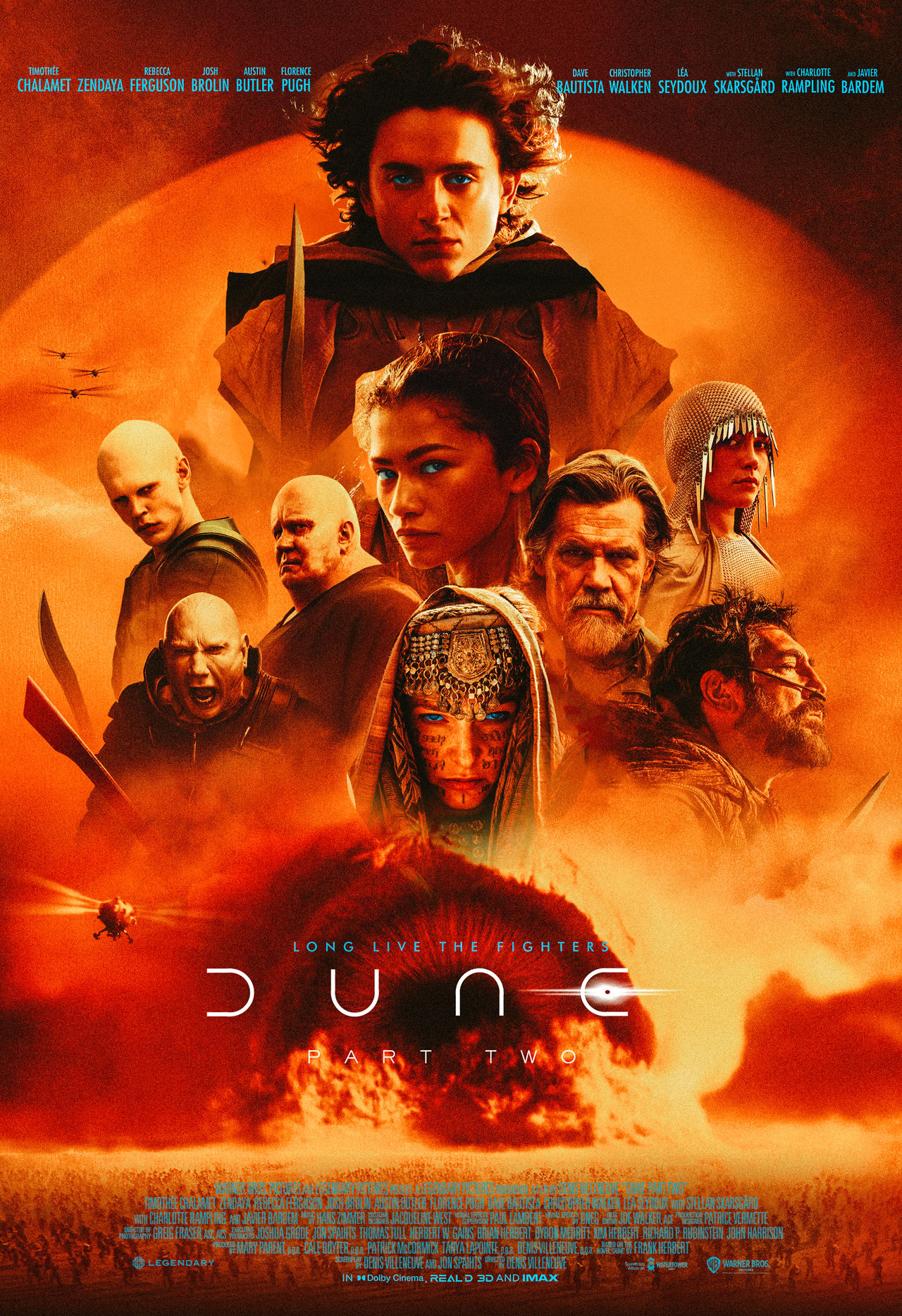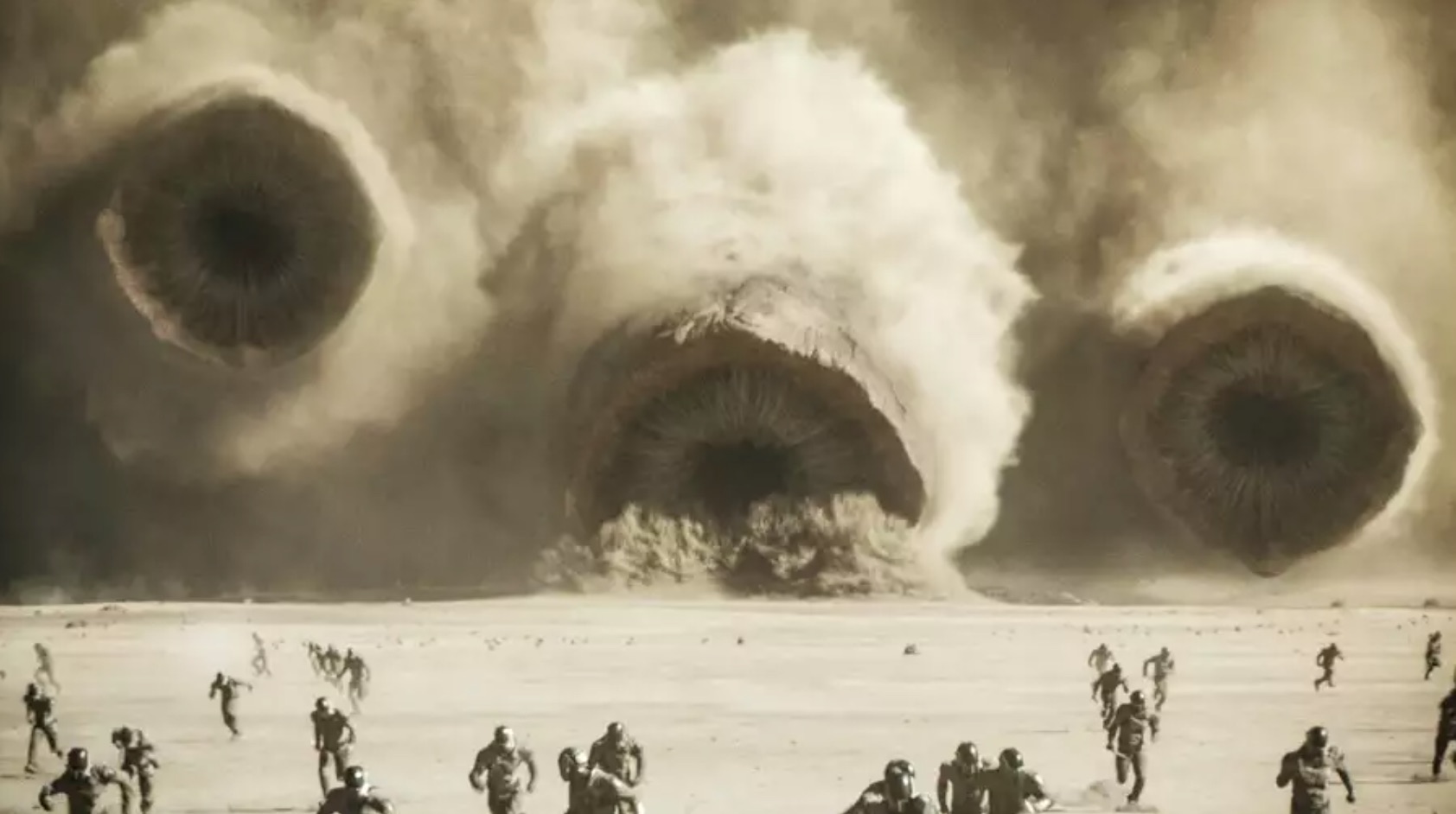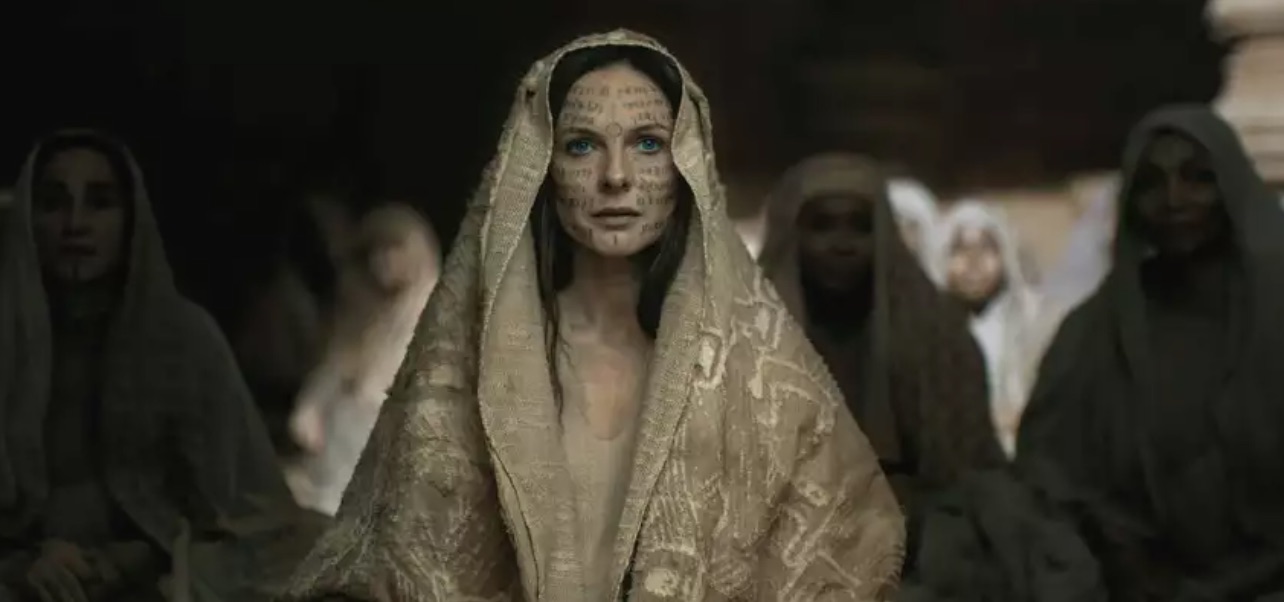
Fill up an extra bottle of precious water and prepare to become lost once more in the sandworm-ridden deserts of Arrakis as director Denis Villeneuve's rather plainly titled "Dune: Part Two" has finally arrived in theaters this past weekend after a four-month delay due to last summer's Hollywood labor strikes.
The last time we left legendary author Frank Herbert's cruel planet back in 2021, the messianic Paul Atreides (Timothée Chalamet) and his mother Lady Jessica (Rebecca Ferguson) had found sanctuary as fugitives within a clandestine tribe of mysterious blue-eyed natives known as the Fremen. The evil Harkonnens, in collusion with the shadowy Emperor Shaddam IV, attacked the Atreides family and killed Paul's father Duke Leto Atreides (Oscar Isaac) in a power grab to control the most valuable substance in the cosmos … the spice melange.
Now with spice production being threatened, Paul must embrace his destiny and rally his legions of desert-power Fremen warriors to enact revenge on his father's murder and the massacre of House Atreides while his mother emerges as the clan's new Reverend Mother.
Related: 'Dune' review: Denis Villeneuve brings a sci-fi classic back to the big screen

Also returning to the scene of the epic slaughter in this more entertaining second half are Josh Brolin (Gurney Halleck), Stellan Skarsgård (Vladimir Harkonnen), David Bautista (Rabban), Javier Bardem (Stilgar), and Zendaya (Chani).
Newcomer Austin Butler ("Elvis," "Masters of the Air") portrays Baron Harkonnen's egg-headed psychotic nephew, Feyd-Rautha, with a palpable ferocity that offers a hint of Ray Park's sensational Darth Maul in "Star Wars: The Phantom Menace."
Seeing Warner Bros./Legendary Entertainment's "Dune: Part Two" on an imposing IMAX screen is what full bore Hollywood miracles are made of, adorned once more with an earsplitting bombastic score by Hans Zimmer and Greig Fraser's gritty cinematography. The $200 million-budgeted film took a good share of the global box office in its opening salvo, collecting $178 million worldwide and $82.7 million domestically with generally enthusiastic notices from fans and critics.
But similar to "Dune: Part One," this follow-up installment is an overlong affair that often feels like slogging through hip-high dunes wearing cement boots. The first 45 minutes set in the deep desert is saturated with repeated exposition dumps about prophecies and signs and portents that will make you squirm with restless leg syndrome hoping for something of interest to occur.
Despite being technically brilliant and visually arresting, "Dune: Part Two" suffers from an excess of ultra violence and a decidedly dull script which even manages to make scaly mega-worms exploding from oceans of sand seem routine.

As the battles to halt spice production intensify, some quite spectacularly staged, the filmmakers attempt to elicit chemistry between Paul and Chani but it's a losing proposition. Zendaya does her best with the material, yet her perpetually-furrowed brow and blue-eyed stare are about all the drama she can muster. Endless cutaways to her scowling face for silent reaction shots might remind you of the NFL's incessant coverage of a giddy Taylor Swift at Kansas City Chiefs games this past season.
In a colossal waste of Academy Award winning talent, Christopher Walken's appearance as the Emperor of the Known Universe is a shamefully brief and bland performance that spans a limited acting spectrum of glum to gloomy. His daughter, Princess Irulan (Florence Pugh), sleepwalks through her underdeveloped scenes with ho-hum precision that makes you wonder why she's in the film at all except to fulfill her own end fate as the Messiah's reluctant bride.
But make no mistake about it, this is Austin Butler's movie and his simmering sociopathic portrayal of the heir to the Harkonnen empire electrifies every scene he appears in, especially a brutal birthday party gladiator match staged in a massive arena, beautifully shot and bleached of all color and complete with the Giedi Prime version of bursting pyrotechnic blobs.
Bardem's Stilgar is rock solid representing the true heart of Arrakis and a charismatic force whenever he appears on screen, as is Josh Brolin as grizzled Gurney Halleck.

Still a frustrating omission for the most part is the minuscule screen time given to the all-important Spacing Guild and its mutated navigators who fold space-time to allow for interstellar travel and commerce by utilizing Dune's greatest asset to move across galaxies instantly. Remember, they were the culprits who teamed up with the Emperor to order the assassination of Paul Atreides in the first place!
But the oddest directorial choice of all is the sneeze-and-you'll-miss-it moment of Paul's unborn telepathic sister Alia (Anya-Taylor Joy), seen as an adult in a cryptic future vision near an ocean. Alia's unfolding story continues in the novels "Dune: Messiah," "Children of Dune," "Hunters of Dune" and "Sandworms of Dune," and here it's simply a minor throwaway scene issuing a vague warning.
Say what you will about David Lynch's ill-fated '80s-era "Dune," the maverick director recognized the inherent weirdness in Herbert's dense work and was not afraid to dig his creative spurs into its literary flanks and add some cool psychedelic theatricality and Grand Guignol flair, an approach Villeneuve obviously shares no affinity for.
Regardless of its glacial pacing and depressing portrayal of a planet in crisis, Villeneuve has made a valiant attempt to penetrate the intricacies of the iconic 1965 novel's eco-politics, convoluted mythology and mysticism, but in the end has only reinforced the notion of its notoriously opaque nature with a cold, distanced effort, but perhaps that's just enough to quench our everlasting "Dune" thirst.







